Report on three-years’ support and development of supplementary schools in the London boroughs of Barnet, Brent, Camden and Westminster.
The whole aim of the John Lyon’s Charity (JLC) funded project from 2013-2016, has been to improve the quality and sustainability of supplementary schools, both individually and collectively, in order for them in turn to support and improve the educational achievement and attainment for the children and families in their local communities. With this in mind, the training programme offered by the Quality Development Advisors (QDAs) was designed to provide in-depth support over three years. Including questioning and persistent challenging of supplementary schools to examine their current practice and to learn how to become more self-sufficient, self-evaluating and independent organisations.
At the start of the project, it was very common for supplementary schools to deliver their programmes with such an intense focus on their communities that this could sometimes be mistaken for isolation. From other aspects of the project, such as Quality Framework visits, it was clear that supplementary schools were at different stages of development; some have been running for over 30 years with others opening up to provide for newly arrived communities. The training opportunities provided by the NRCSE have systematically worked towards widening this focus to show how many schools have a unique setting yet similar goals.
The planned programme of training in the boroughs of Barnet, Brent, Camden and Westminster have supported supplementary schools to
- improve the quality of standards
- realise specific goals
- respond to change
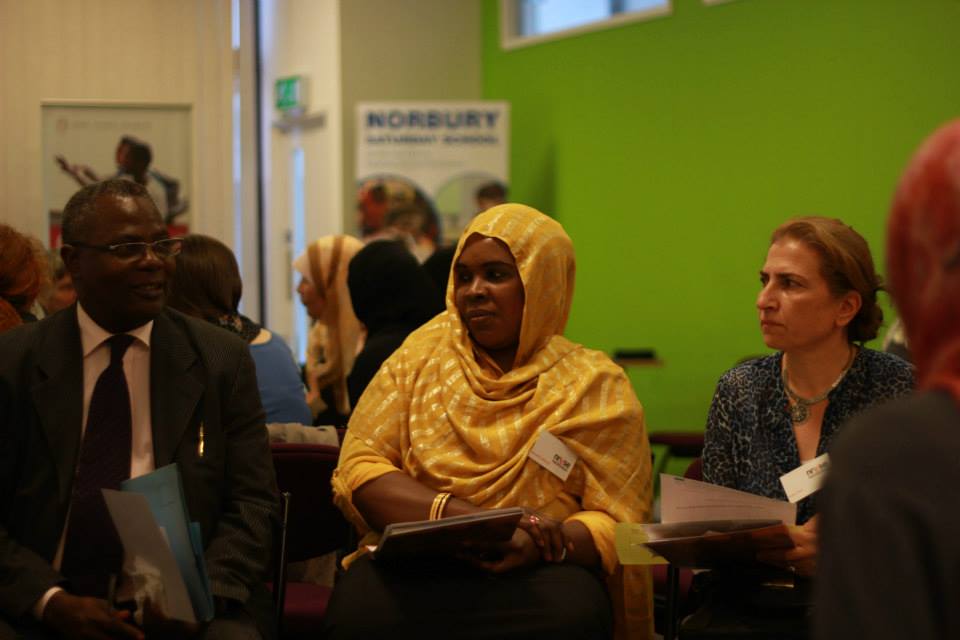
Whole Project Networking Events
The target audience for the networking events were Headteachers, Co-ordinators and Lead Teachers and Teachers and Management Committee members of supplementary schools, as agents of change in improving the quality of their supplementary schools.
They were designed to bring as many supplementary schools in the project together three times a year, so that they could share their knowledge and skills as well as exploring themes in greater depth such as
“Promoting cultural identity through supplementary schools” (keynote: Dr. Tozun Issa, 7/11/13);
“Languages in Education” (keynote: Dr. Jim Anderson, 25/2/14);
“Building and strengthening partnership working” (keynote: Joy Collins and John Paxton, 10/6/14);
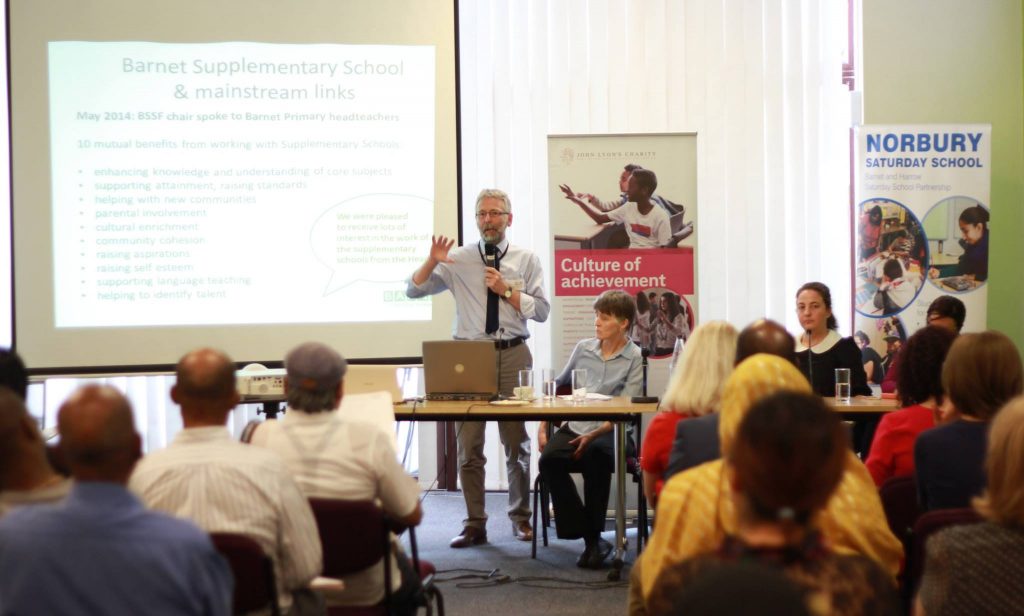
“Creating a community network” (keynote: Luljeta Nuzi, 16/10/14);
“Practical partners in learning” (keynotes: Emma Taylor and Rebecca Bonsaver, 24/2/15); and
Participation in the LMU Conference, “Community in Education” (keynotes: Gail Tolley and Prof. Li Wei, 3/7/15).
While keynote speakers opened these events, the majority of the time was given to supplementary schools to lead and participate in discussion groups to look at how these themes could inform practice on
- Student Involvement (Zahra Nusser from Al-Iman Arabic School)
- Partnership Building with Mainstream Schools, other supplementary Schools, LAs (Mohamed Ali from Britsom)
- Sustainability: Developing in Austerity (Olu Kubweza from OYA)
- Tracking Students’ Progress (Shahla White from Rustam)
- Innovative Resources (Jihan Salha from Al Ola)
- Supporting Teachers (Emily Beckwith from Paiwand)
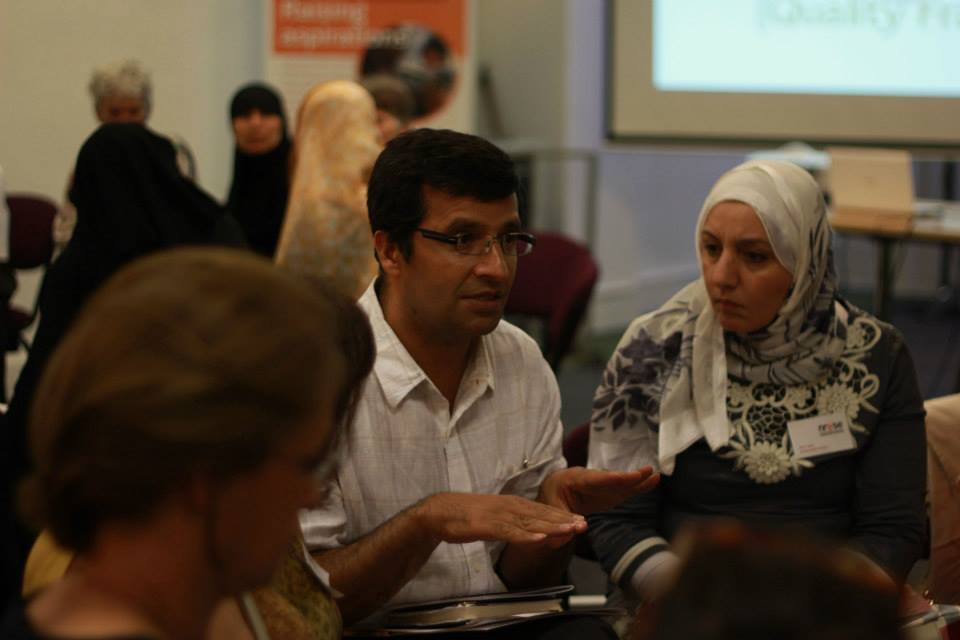
These networking events were highly valued by the supplementary schools as a constructive way to share experience and practice ‘on the ground’ and to begin to change and improve practice (evaluation forms).
In the second year (2014/15), the events focused more on Partnership working, in particular looking at the relationship of competing priorities of different sectors; statutory education, funders and specific supplementary schools programmes (10/6/14) and how supplementary schools can organise effectively (16/10/14) in order for their work to be recognised and valued as a contributing factor in the improved achievements and attainment of BME communities in Barnet, Brent, Camden and Westminster.
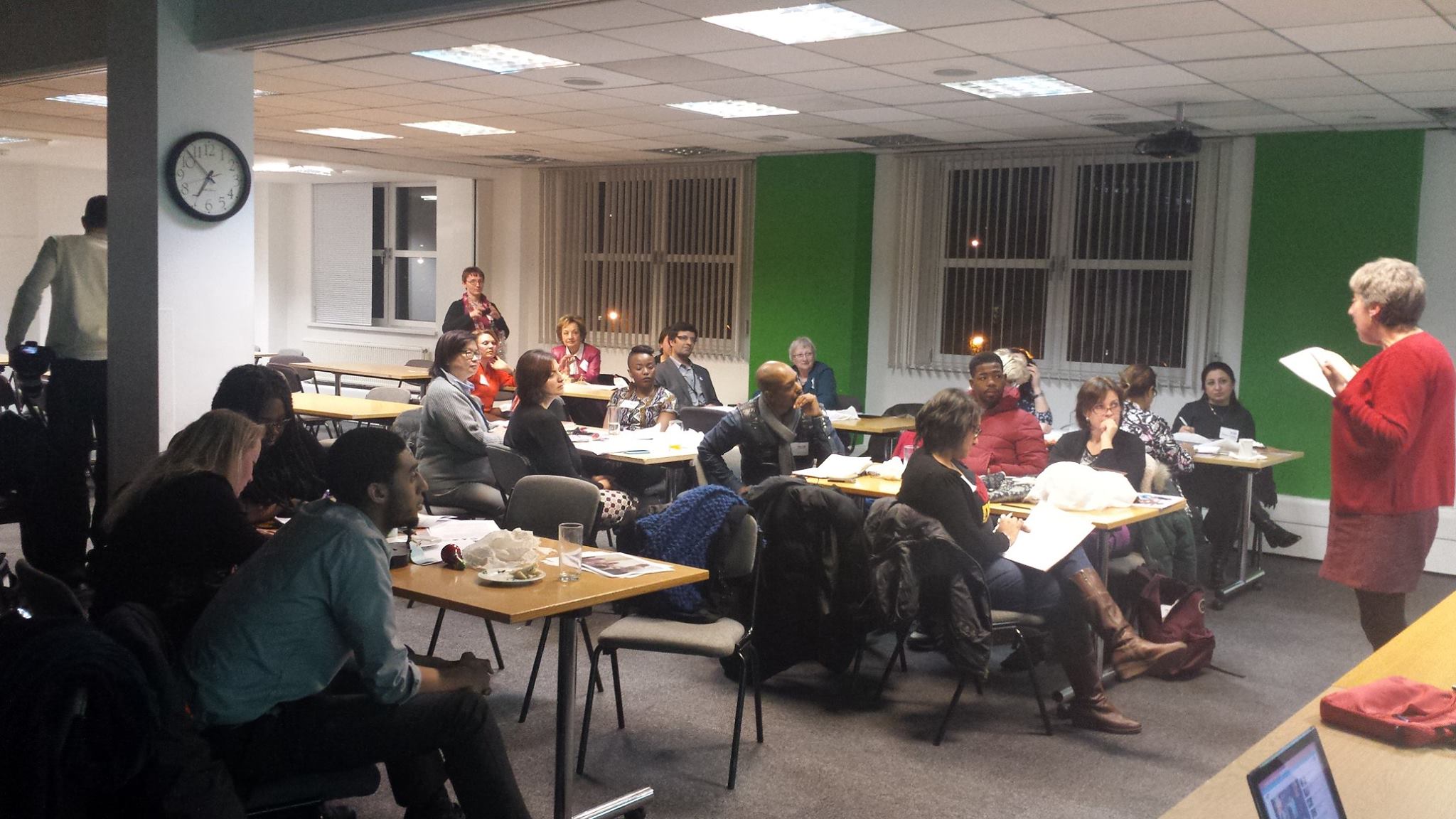
The third year (2015/16) built further on how Partnership Working can be realised with partners such as The British Museum, The Museum of London and Universities (22/6/15)
as well as projects that supplementary schools can develop to enhance the programmes they provide, using the Critical Connections: Digital Story-telling collaboration of Goldsmith’s College, University of London (13/10/15 and 8/2/16) with Hua Hsia Chinese School and Peace supplementary schools.
The networking events, while not seen as “training”, were key to bringing supplementary schools together so that they could explore aspects that each wanted to develop, and learn from each other’s good practice. They provided the springboard for more specific training in each borough and towards the end of the project across boroughs – literally building the network.
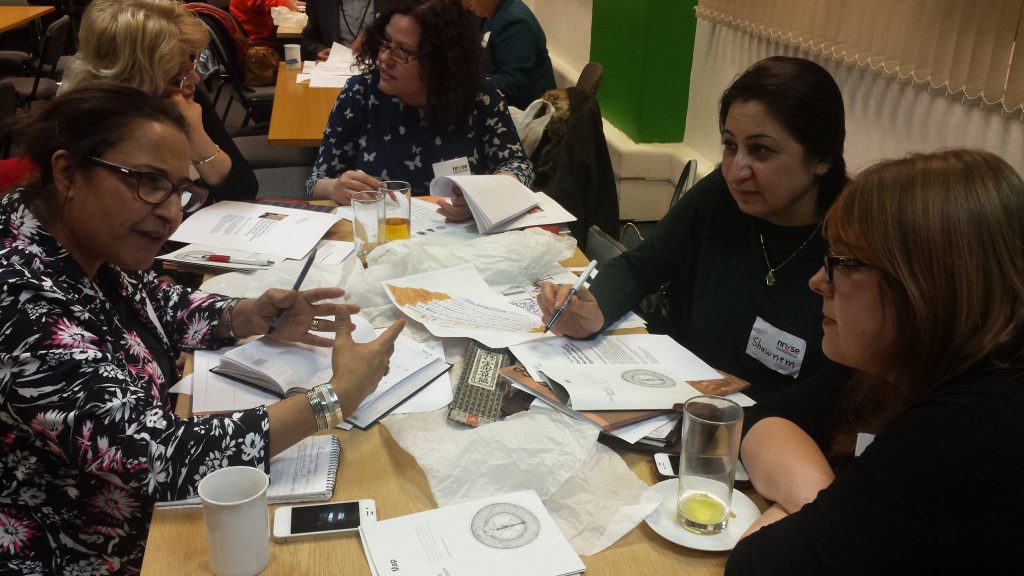
Specific Training Programmes
It is from the networking events that more serious consideration was given to direct training opportunities that have supported individual supplementary schools to realise specific goals for their organisations, so working towards the higher levels of the Quality Framework.
In particular, there was a great demand for the OCN accredited learning course Effective Teaching Skills in Supplementary Schools.
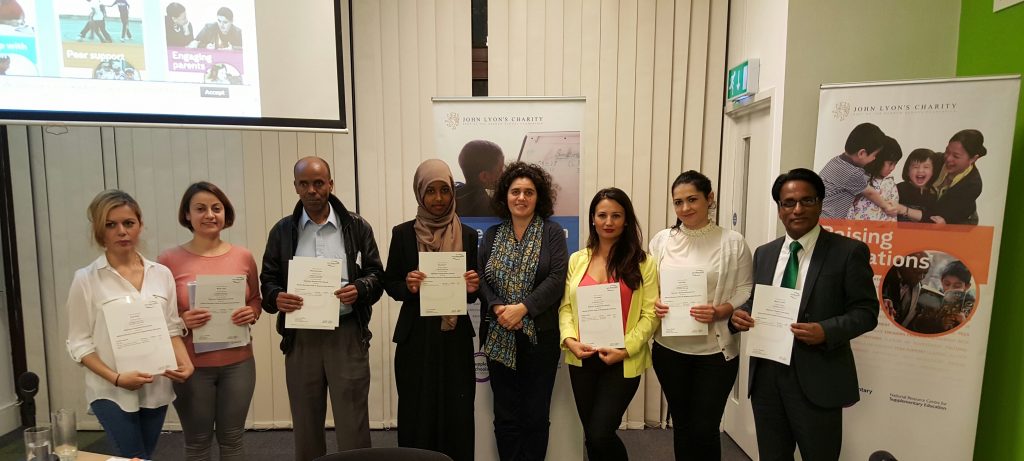
Over the life of the project, seven courses were run, with each course consisting of 9 weekly sessions of 3 hours per session. Despite this huge commitment of time by the staff and volunteers 89 learners enrolled for the courses and over 80% of them completed the course and submitted their course work. On average, 24% achieved Level 2 for the theory underpinning teaching while 77% achieved Level 3. However for the practical element of the course 87% achieved Level 3. This is a remarkable achievement for all the learners for whom English is an additional language!
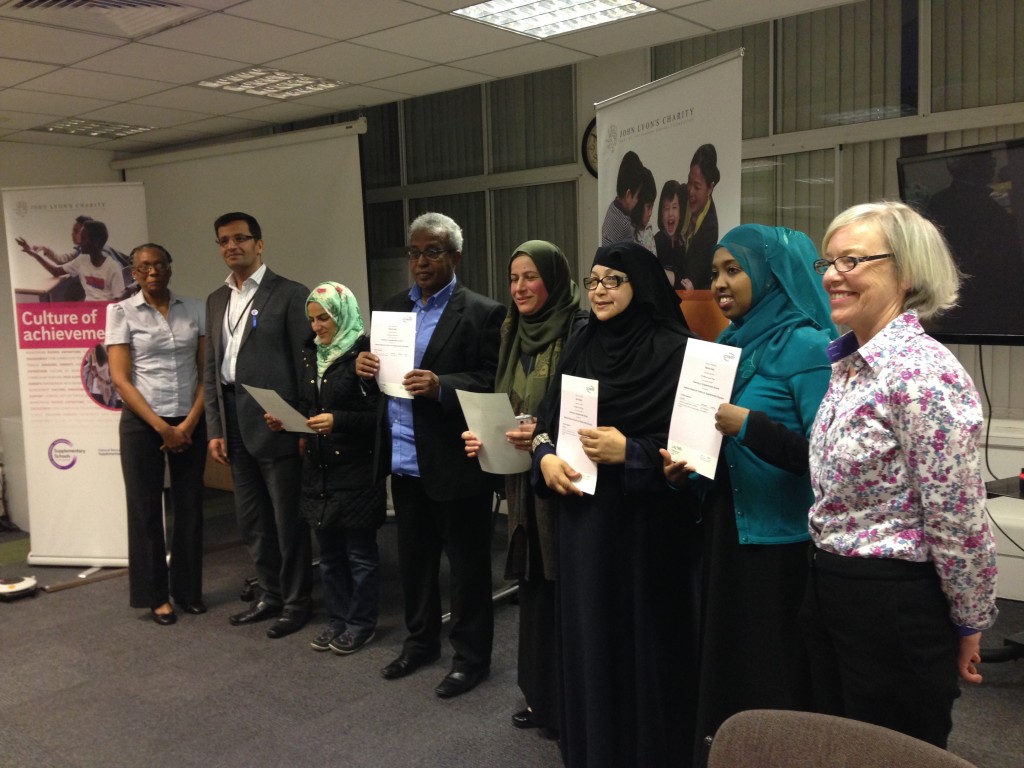
These courses were highly valued by the staff and volunteers who not only showed great dedication but also a genuine willingness to learn from others and to generously share their own experience and expertise. The externally accredited learning provided the opportunity for their skills and abilities to be recognised and valued, which in turn has boosted their confidence and as educational providers. Again, in turn, this has driven up the quality of standards supplementary schools, as the Silver Award of the Quality Framework focuses clearly on improving Teaching & Learning to high standards.
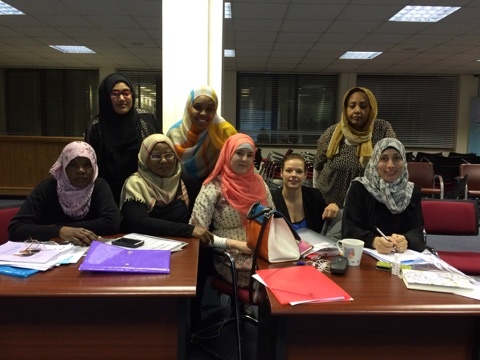
In addition to the accredited learning, there have been a number of borough-based training sessions that have supported supplementary schools in the project boroughs to work towards the Gold Award standards. In Year 1, Camden supplementary schools consolidated their understanding of Governance and Management with the Effective Management Skills in Supplementary Schools (OCN accredited) and bite-size sessions within the borough-based supplementary school forum meetings.
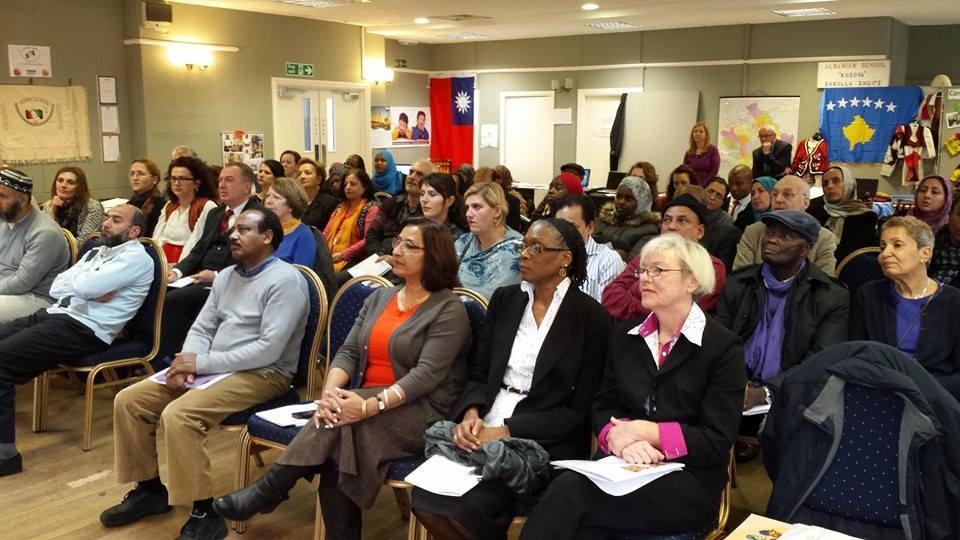
Building on this in Year 2, across all the boroughs, there were training sessions on Finance and Fundraising (9/7/14, 1/10/14, 2/10/14, 15/10/14 and 3/2/15), and a four-borough training session (4/11/14). This training was followed in Year 3, sessions on Monitoring and Evaluation to support tracking projects effectively.
Preparing for Change
The planned programme of training was very mindful of the changing political, economic, social and technical climates over the life of the project. It addressed real challenges for supplementary schools in terms of funding sources and latterly social attitudes. Linking the training inextricably with the Quality Framework has kept the common objective of supplementary schools to remain central, while ensuring that they and their staff/volunteer have the wherewithal to meet change constructively.
When reflecting on the training over the past three years, it is clear that it has had a very positive impact indeed. As the training included all boroughs, this has improved their sense of belonging in the wider sense of supplementary education. The accredited training has also had a very positive outcome as the moral of staff has increased, not only within their own supplementary schools but also in the wider community. The celebration events demonstrate how much this is valued by the wider community.
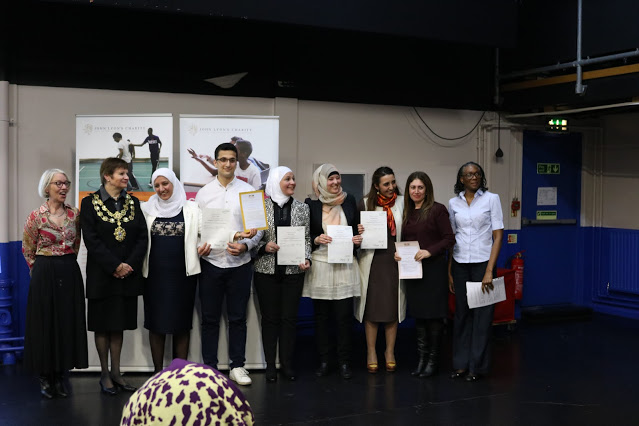
Conclusion
While the impact of the training can be seen in the progress of individual schools through the Quality Framework Awards, perhaps a less visible aspect is the increasing amount of ‘group work’ carried out by the leaders of supplementary schools. An indirect benefit of coming together for training, is the coming together for something that is not training. As supplementary schools became more comfortable meeting to discuss issues and share
their responses, so their ability to act collectively has also grown. An excellent example of this is the coming together of supplementary schools in the boroughs to respond to the DfE Call for Evidence, where the boroughs submitted their own responses in January 2016. Clearly demonstrating confidence in themselves and each other.
For the NRCSE, the training programmes offered through the project have supported key project objectives such as quality assurance but it has also had the added, unforeseen benefits. One of these is the improved information, advice and guidance given to supplementary school as a result of better two-way communications built up through the whole range of training opportunities that have been delivered.
For John Lyon’s Charity, the project has enabled them to give with confidence to locally-based, community embedded projects knowing that the provision is sustainable and effective.

Leave a Reply
You must be logged in to post a comment.